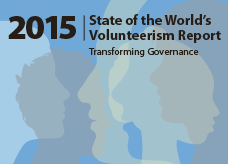We’ve celebrated another trip around the sun, and that means it’s time to look at what were my most popular blogs of 2022 – and to try to figure out why. It’s an exercise I do not so much for YOU, my readers, but for me. It’s the kind of self-analysis every nonprofit, NGO, government agency, or consultant for such should do.
There are eight blogs here that had enough readers (clicks) to qualify for being “popular”, in my opinion. And here they are.
Nine plus four emerging volunteer engagement trends (a VERY different list than you will read elsewhere) is not only the most popular blog I wrote in 2022, it is also in the top 20 of the most popular blogs I have EVER written. I was really surprised at how many people retweeted it.
The key to retaining volunteers. Another blog that got a LOT of retweets. It’s worth noting that Twitter has always been the most popular driver of people to my blogs – way more than Facebook or LinkedIn. That’s why I can’t quit it… yet.
What funding volunteer engagement looks like. A really popular blog – but I thought it would be even more so.
Seen a drop in volunteers? Quit blaming the pandemic & fix the problems. This blog struck quite a nerve, based on retweets.
How are you supporting the mental health needs of your volunteers? This blog, published in July 2022, saw a surge in popularity late in the year. Not sure why – I can’t see that someone has reposted it. But thank you to whoever did so.
How to connect & engage with volunteers remotely – even when those volunteers work onsite. More and more nonprofits are realizing that the Internet is an essential tool for supporting ALL volunteers, including those that you see onsite most of the time.
Either be committed to quality or quit involving volunteers. A blog I worked on for months and based on SO many conversations with nonprofits, schools and community programs that recruit volunteers, as well as my own experience trying to volunteer.
When IT staff isn’t providing proper support for volunteer engagement. Another blog I drafted over months. I’ve wanted to write it for years. I wish IT staff wasn’t an obstacle for managers of volunteers but, sadly, too often they are.
A couple of months, I’ve been blogging every other week, rather than every week. I’ve had a lot of other projects going on that need my energy and time, and cutting back on blogging let me do those other projects too. But for the first four months of 2023 at least, I’ll be back to blogging every week for a while, because those other projects have given me OH so much more to say! Let’s see how long that lasts.
Happy 2023! Hope yours is off to a great start.

If you have benefited from any of my blogs or other parts of my web site and would like to support the time that went into researching information, developing material, preparing articles, updating pages, etc. (I receive no funding for this work), here is how you can help.

Also, I have exactly 18 copies of The Last Virtual Volunteering Guidebook. And when they are gone, they are gone – as in, you will have to pay a LOT more by ordering them from Amazon. If you want to learn how to leverage online tools to communicate with and support volunteers, whether those volunteers are mostly online (virtual volunteering) or they provide service mostly onsite at your organization, and to dig deep into the factors for success in supporting online volunteers and keeping virtual volunteering a worthwhile endeavor for everyone involved, you will not find a more detailed guide anywhere than The Last Virtual Volunteering Guidebook. It’s based on many years of experience, from a variety of organizations. It’s available both as a traditional print publication and as a digital book.



